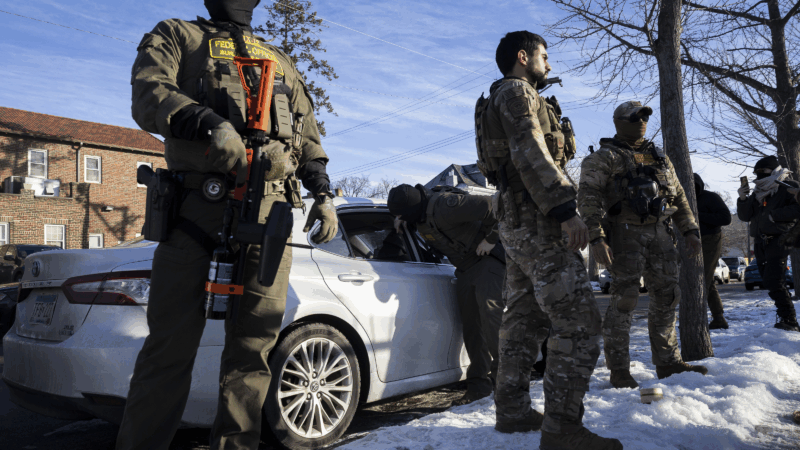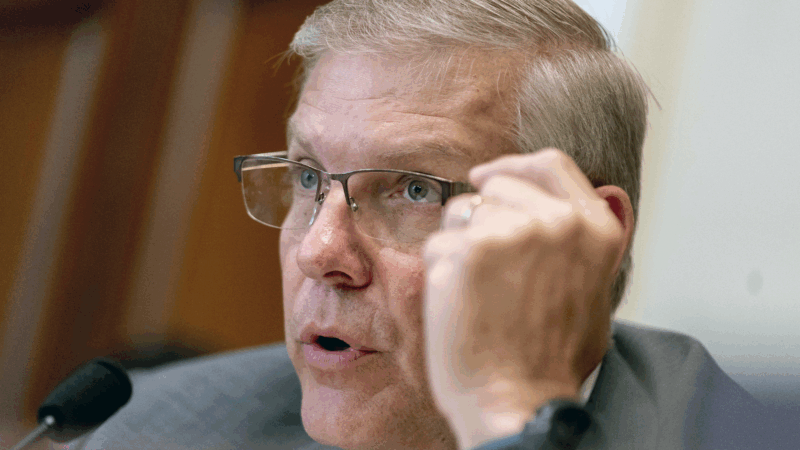A Pentagon inspector general announces investigation into Hegseth’s use of Signal
The Pentagon acting Inspector General Steven Stebbins is beginning an evaluation of Defense Secretary Pete Hegseth’s use of the Signal messaging app to discuss military operations.
Stebbins’ memo on Thursday follows a request from the Republican chairman and the top Democrat on the Senate Armed Services Committee for a probe into the incident, which was first reported by the journalist Jeffrey Goldberg of The Atlantic. The lawmakers have voiced concern about whether Hegseth and other top national security officials shared classified information on a commercially available encrypted messaging app as they discussed a military strike against Houthi rebels in Yemen.
“If true, this reporting raises questions as to the use of unclassified networks to discuss sensitive and classified information, as well as the sharing of such information with those who do not have proper clearance and need to know,” Sen. Roger Wicker, R-Miss., and Sen. Jack Reed, D-R.I., wrote to Stebbins.
The leaders plan to hold a hearing on the matter after they collect evidence, Reed has told reporters.
Stebbins wrote that the aim of his investigation “is to determine the extent to which the Secretary of Defense and other DoD personnel complied with DoD policies and procedures for the use of a commercial messaging application for official business.” The review will also examine “compliance with classification and records retention requirements,” he said.
Stebbins became acting inspector general after President Trump fired a swath of inspectors general across the government after taking office in January.
Hegseth has adamantly denied that any classified war plans were discussed in the Signal chat.
The White House said on Monday that it had concluded its own review of how Goldberg was inadvertently included on the group chat, and said that none of the information shared was classified, despite its sensitive nature.
“This case has been closed here at the White House as far as we are concerned,” press secretary Karoline Leavitt told reporters. “There have been steps made to ensure that something like that can obviously never happen again, and we’re moving forward,” she added, without detailing those steps.
NPR disclosure: Katherine Maher, the CEO of NPR, chairs the board of the Signal Foundation.
What do eggs, Grok and Greenland have in common? They’re all quiz-worthy! Are you?
See if you can get a perfect score for once.
‘A Knight of the Seven Kingdoms’ is ‘Game of Thrones’ for the haters
There are no dragons, no maps and no internecine family trees in this Game of Thrones prequel about an underdog knight and his would-be squire.
With limited political power, Minnesota Democrats navigate resistance to Trump
From public pleas to lawsuits, Minnesota's Democratic leaders are trying to stop the surge of federal agents on their streets.
FEMA is getting rid of thousands of workers in areas recovering from disasters
Thousands of employees whose contracts end this year will lose their jobs, FEMA managers said at personnel meetings this week. The cuts could hobble the nation's disaster agency.
Jodie Foster plans more French roles after ‘A Private Life’
Jodie Foster has spoken French since she was a child. But it's only now that she's taken on a lead role scripted almost entirely in the language of Molière, for A Private Life.
House Republicans are investigating Jan. 6. NPR fact-checked the first hearing
A Republican-led congressional subcommittee is leading a new investigation into the Jan. 6, 2021 attack on the Capitol. Do their claims add up?







